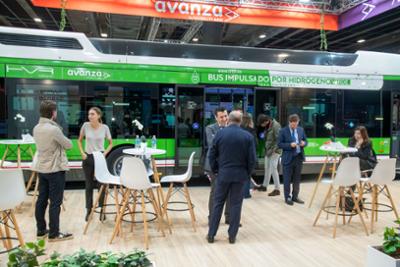

Multimodal transport, contributing more to efficient, safe and sustainable mobility
The development of infrastructures, public-private collaboration and innovation are some of the keys to the expansion of multimodality, which will be one of the themes of Global Mobility Call, from 19 to 21 November
The modernisation of infrastructures, digitalisation and innovation, as well as greater public-private collaboration in logistics, regulation and investment, will be decisive for the future development of multimodal transport with greater efficiency, safety and sustainability.
The role of multimodal transport will be one of the main themes addressed at the third edition of Global Mobility Call, the largest international sustainable mobility event organised by IFEMA MADRID and Smobhub, from 19 to 21 November 2024. This event brings together the main business and institutional leaders from the different sectors involved in this transformation process.
The chain of rail, road and maritime transport, as well as aviation, are combined to make transfer and travel times faster and more efficient, and there is still much potential for improvement here. It is mainly developed in freight transport, which allows companies applying for this scheme to reduce costs. Thus, this practice is characterised by the use of a single contract or transport document for the entire transport process.
In Spain, as in the Europe, significant development of railway infrastructures, motorway networks and the modernisation of ports has taken place. In addition to this, there is also greater logistical coordination, many of its process have been digitalised, and data exchange platforms have been created, which have a direct and indirect impact on the progress of multimodality.
In order to continue to make progress, it is necessary to improve regulatory aspects, cross-border operations, promote investment to improve infrastructure and connectivity and generate innovative solutions for the different agents involved.
In addition to efficiency and speed, other aspects such as the electrification and improved energy efficiency not only of transport, but also of loading and unloading processes and others related to this sector, as well as smart models of management and coordination of logistics chains, will also contribute to the impact in terms of sustainability.
Multimodality in passenger transport, the situation in Spain
The other aspect of multimodality is in passenger transport, where services need to be adapted so that citizens can make journeys with transfers without having to make different payments for each of the modes of transport used.
The situation in Spain was referred to in the second edition of Global Mobility Call by Rafael Barbadillo, president of the Spanish Confederation of Bus Transport (CONFEBUS). He stated that in order to develop multimodal mobility for people, it is essential to have a single ticket for several types of transport, so that the technological possibilities in this field can be applied. Also of great importance is to be able to offer transport with sufficient frequencies and to have efficient infrastructures that enable transfers.
He also highlighted the need to strengthen this scheme through infrastructure, creating exchange hubs, better time coordination, and above all "a system of governance that makes it possible", something for which the public-private collaboration already in place in Spain must be maintained.





